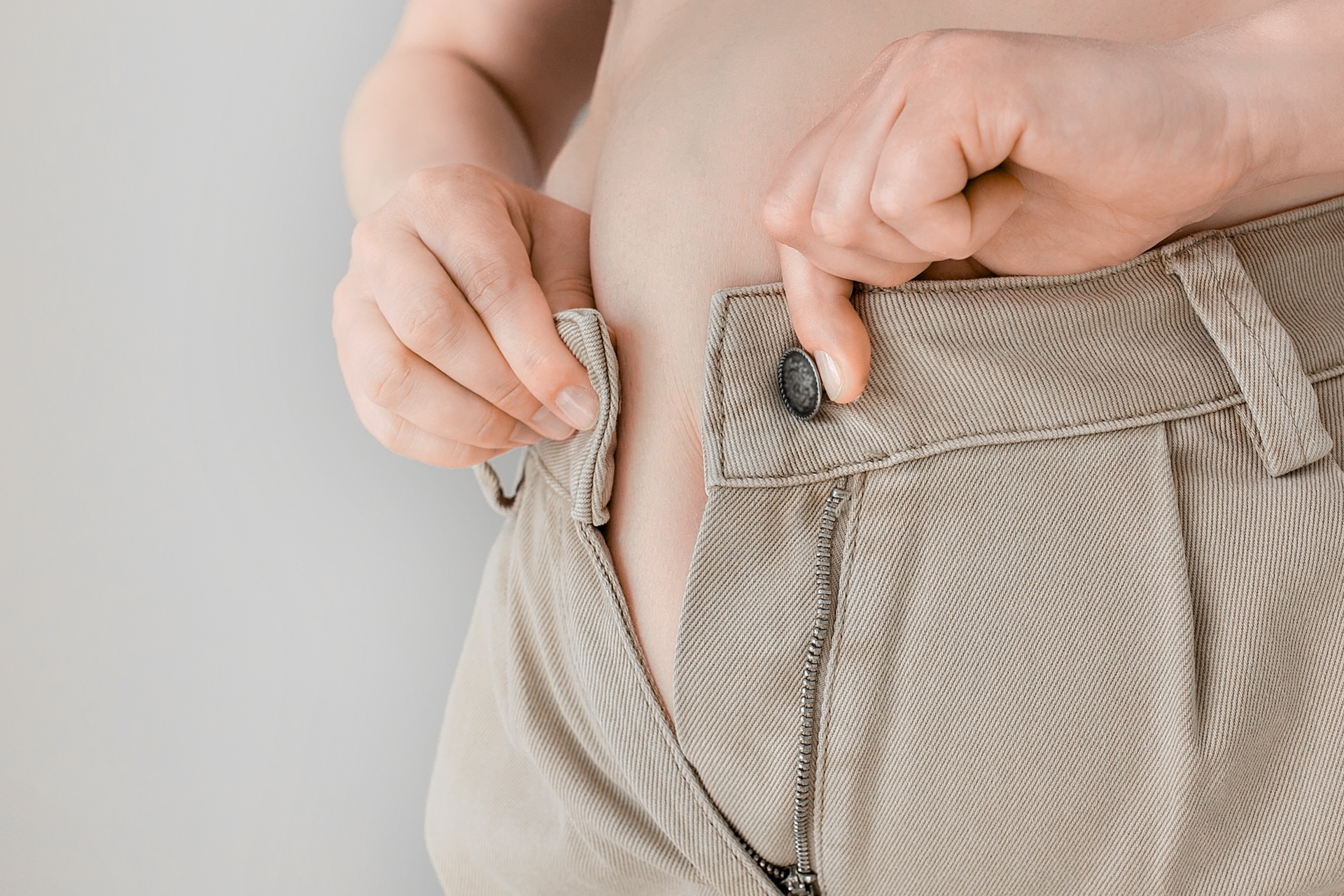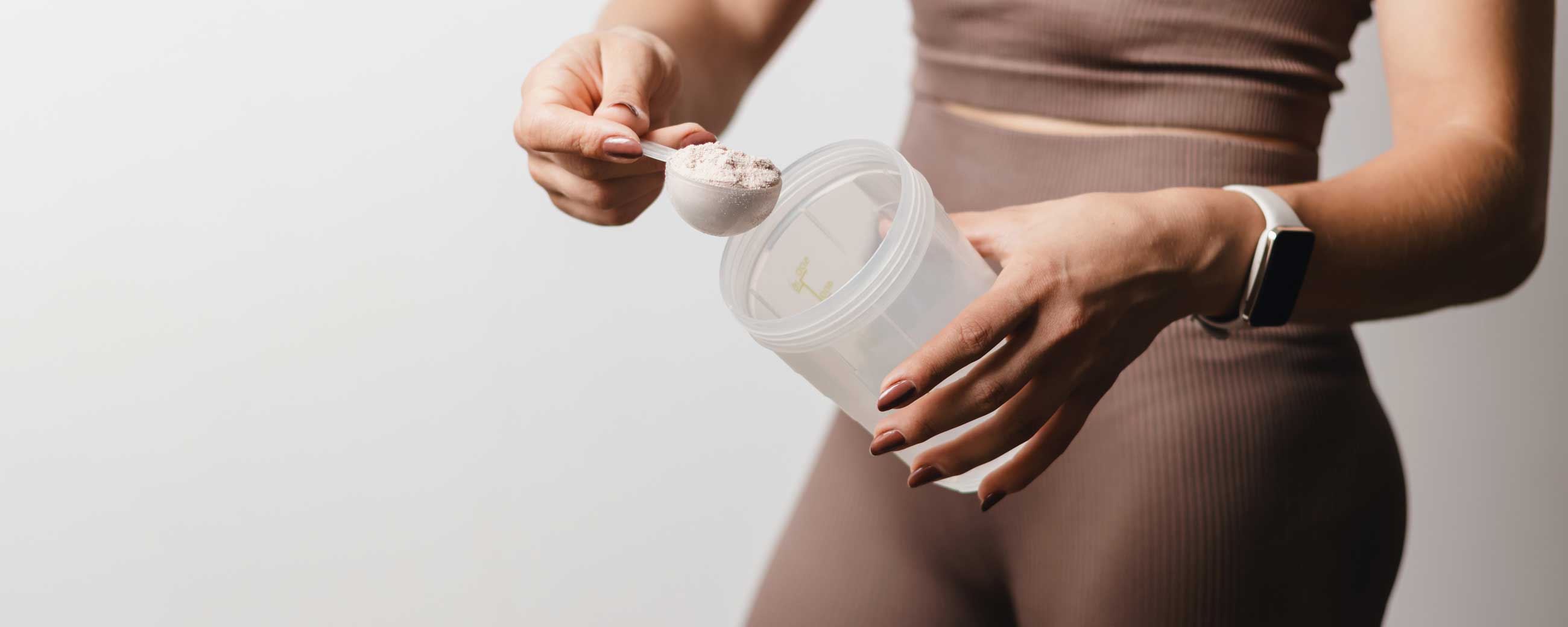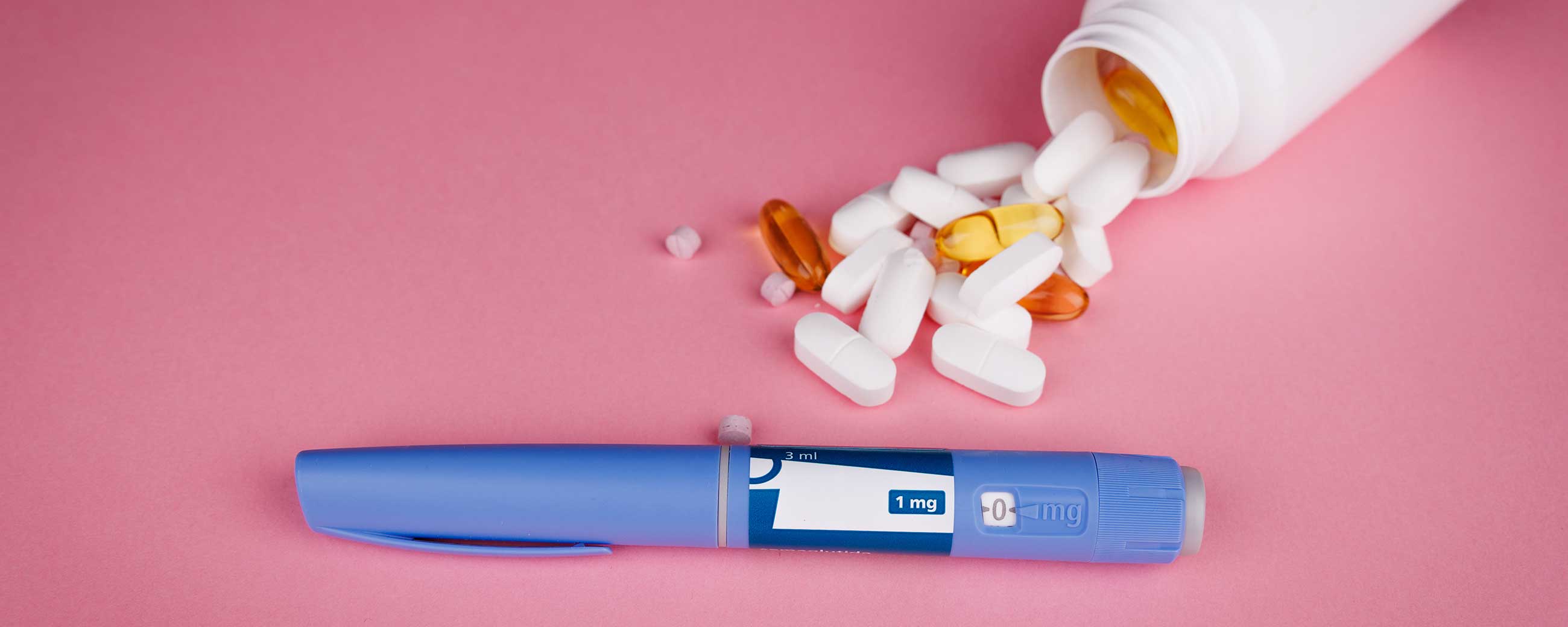
How to Not Gain Weight After Stopping Ozempic & Other GLP-1s

Weight gain after stopping Ozempic and other GLP-1 medications is quite common. In fact, one study showed that people who discontinued Wegovy (another GLP-1) regained 65% of the weight they had lost within less than a year. With the surge in GLP-1 usage and many individuals discontinuing these drugs due to side effects, you may be wondering how to not gain weight after stopping Ozempic and other GLP-1s.
Is weight gain after Ozempic inevitable? Understanding how these medications work and planning for life after discontinuation can help manage this risk. To accomplish sustainable weight loss, it’s essential to focus on long-term lifestyle habits to help maintain weight loss after stopping the medication.
Why most people gain the weight back
Many of us feel uneasy about the idea of taking certain medications for the rest of our lives—most of us prefer to be on fewer medications. If you’re wondering, “do you gain weight after stopping Ozempic, Victoza, or Mounjaro?” you’re not alone. Many people are curious about whether they can eventually stop these medications. Unfortunately, as mentioned earlier, weight regain is common after discontinuation. There are clear reasons why this happens:
- Appetite increases. GLP-1s work by signaling the brain to reduce hunger and increase feelings of fullness. They act on the brain’s hunger and satiety centers, helping to curb the urge to eat. Additionally, these medications help stabilize blood sugar, and stable blood sugar can help reduce the spikes and drops that often lead to hunger and cravings.
- Fullness decreases. In addition to reducing appetite, these medications also slow down how quickly food leaves the stomach, making you feel full longer. So when you stop taking a GLP-1, food once again moves faster through the stomach, leading to weaker signals to stop eating and potentially increasing food intake.
- Lack of accountability. People who lose weight and keep it off usually stick to certain habits that help keep them accountable. Injecting a GLP-1 weekly can serve as a physical reminder to maintain healthy habits. This added accountability can support lasting lifestyle changes, which are crucial for long-term weight management.
How to keep the weight off after GLP-1s
If you plan to stop taking a GLP-1 medication, you should create a plan to prevent potential weight regain. An approach that incorporates healthy eating, movement, and stress management will provide a strategy.
- Focus on diet. An effective way to prevent weight regain after stopping a GLP-1 medication is to reduce your carbohydrate intake. A diet high in carbohydrates increases circulating levels of insulin, which promotes fat storage, increased hunger, and cravings. When you reduce insulin levels by lowering carbohydrate intake, you’ll be able to utilize fat for fuel rather than simply store it. Hunger and cravings go downtoo, making it easier to adhere to dietary changes.
- Move your body. Exercise is a great tool to help you keep the weight off. It increases your sensitivity to insulin, resulting in less of this fat storage hormone circulating throughout your body. Exercise can’t replace poor dietary choices, but one healthy habit often leads to another, so by incorporating more movement into your daily routine you are more likely to adopt healthier eating choices, too.
- Manage stress. Stress triggers the release of cortisol and adrenaline, hormones that can reduce insulin sensitivity, resulting in greater hunger, cravings, and weight gain. Chronic stress can impact appetite as well, often leading to emotional eating and cravings for high carb foods and sweets. It may also make adhering to other healthy habits like exercising more difficult. By taking care of your mental health and stress levels, you can help keep the weight off.
What to do if you already gained weight back
If you've stopped taking a GLP-1 medication and regained weight, it's never too late to commit to healthy habits and lose weight again without drugs. Start by reconnecting with your "why"—what motivated you to lose weight initially? How did your quality of life change after you lost weight? Focusing on this can keep you motivated, even when the journey feels challenging.
Set smaller, manageable goals instead of trying to change everything at once. For example, aim to fill half your plate with non-starchy vegetables at dinner three nights a week. This can lead to adopting other healthy habits, like reducing your intake of breads and grains or increasing your physical activity by keeping your sneakers ready by the door.
Accountability is key. Choose a daily action to track your progress, whether it's stepping on the scale, keeping a food log, or measuring your waist. Make it a habit to reinforce your commitment to healthy living.
Lastly, Virta Health offers weight loss results comparable to GLP-1s. If you've stopped a GLP-1 or are considering it, Virta can help you achieve weight loss through healthy lifestyle changes, supported by one-on-one coaching and medical supervision.
The Takeaway
Managing weight after stopping a GLP-1 doesn’t need to be an uphill battle. If you are struggling with your weight or diagnosed with type 2 diabetes and want to live a healthier lifestyle, Virta Health may be able to help. By making healthy lifestyle changes in a medical setting with supportive resources like 1:1 virtual coaching, you can regain control of your health and feel like yourself again. See if you’re eligible for Virta Health here.
This blog is intended for informational purposes only and is not meant to be a substitute for professional medical advice, diagnosis, or treatment. Always seek the advice of your physician or other qualified health provider with any questions you may have regarding a medical condition or any advice relating to your health. View full disclaimer
Are you living with type 2 diabetes, prediabetes, or unwanted weight?








